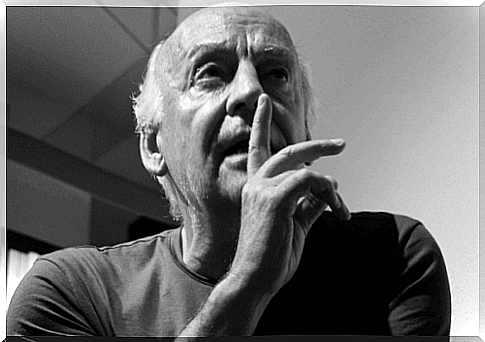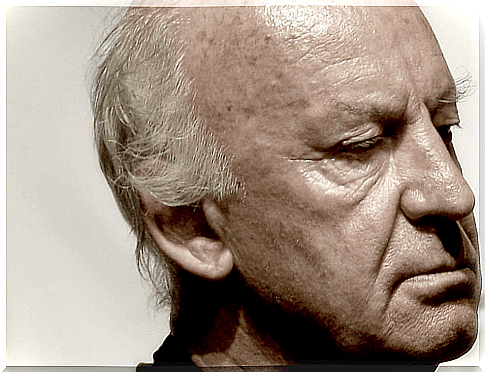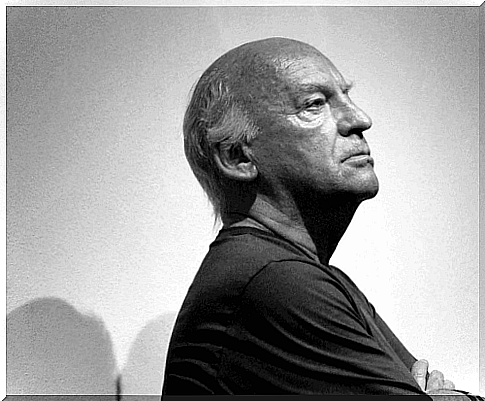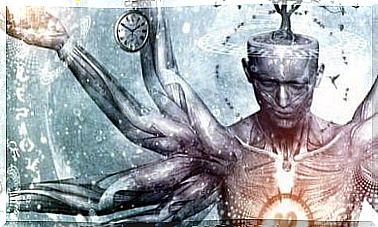Eduardo Galeano: Biographies Of A Libertarian

The name Eduardo Galeano is synonymous with good literature, social commitment, and ethics. His book called Open Veins of Latin America is a true classic that has been translated into more than 20 languages.
It’s impossible to put Galeano in just one genre. His works often combine reality with fiction, emotions with thoughts. In fact, people give Galeano credit for inventing the term “feel-think-language,” which he uses to refer to this particular combination of objectivity and subjectivity.
One of the most interesting things about Galeane is that he was a self-taught academic. He never held a formal professional title, although he received several honorary doctorates. Maybe that’s why his work is so significant, because his everyday perceptions inspired his writing.

An author in Montevideo
Eduardo Galeano was born in Montevideo, Uruguay, on September 3, 1940. His name was Eduardo Germán María Hughes Galeano, but he ended up keeping only his mother’s last name. His family was wealthy and very Catholic.
During his childhood, Galeano dreamed of becoming either a saint or a football player, whichever came first. When he was 14, however, he brought a drawing he had made to the weekly newspaper El Sol . They liked it so much that they bought it there and then, and Galeano became a socialist cartoonist.
When he was 19, he had an existential crisis and tried to commit suicide. He never explained exactly why he did it, but we know that after he came out of the coma, his life changed drastically. That’s when he started calling himself Eduardo Galeano and started writing for the weekly magazine Marcha .
Eduardo Galeano in exile
In 1973, there was a military coup in Uruguay, and a terrible dictatorship took power. Galeano was arrested and imprisoned for a while before fleeing to Argentina. At the age of 32, he wrote the popular book Open Veins of Latin America . He wanted to write a political economics book, but instead wrote a passionate story that has become an icon in Latin American literature.
At that time, Galeano had married twice and had three children. In Argentina, he was the co-founder of the weekly magazine Crisis. Unfortunately, a dictatorship took over Argentina in 1976, and Galeano had to flee again. Just before he left, he met Helena Villagra at a barbecue party, which became his companion for the next 40 years.
The dictatorships of Uruguay, Argentina, and Chile banned Galeano’s books. Shortly afterwards, he fled to Spain where he wrote the famous Memory of Fire trilogy. He was inspired by a Greek poem, and wrote the books in parts. The story goes that he scribbled down some of the chapters of his books on napkins.

Eduardo Galeano returns to Uruguay
Galeano was finally able to return to Uruguay in 1985 when the dictatorship fell. True to his tradition, he founded a new weekly called Brecha with Mario Benedetti and other intellectuals. He also became a regular visitor to the cafe El Brasileiro, one of the many cafes in Montevideo. He always sat in the same place by the window. El Brasileiro still exists to this day, and one of the drinks you can find on the menu is “Cafe Galeano”, in honor of this author.
Once again, Galeano became involved in left-wing political and intellectual groups. In 2004, he participated in the first left-wing political victory in Uruguay, where Tabaré Vázquez was elected president. He later celebrated that Pepe Mujica came to power. He was part of the advisory committee for the television channel Telesur from Venezuela and wrote weekly columns for the Mexican newspaper La Jornada .
In 2007, doctors diagnosed Galeano with lung cancer, making him less visible in public. Galeano never relied on new technology, and wrote by hand until he passed away. He rejected extreme rationality and authoritarianism. Eduardo Galeano died on April 13, 2015, at the age of 74.









